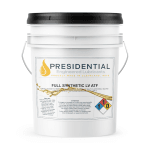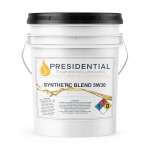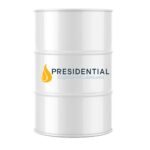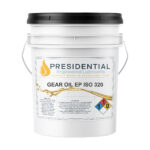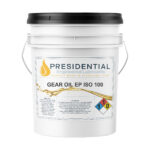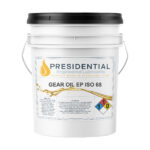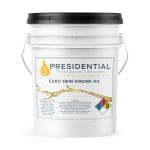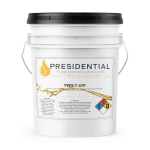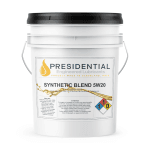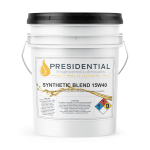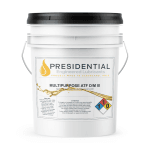
Engine & Vehicle Oil
Find premium motor and engine oils designed for gasoline and diesel engines. Reduce wear and extend engine life in all conditions.
PRESIDENTIAL AUTOMATIC TRANSMISSION FLUID LV
Starting at $128.95
PRESIDENTIAL SYNTHETIC BLEND 5W30
Starting at $98.00
PRESIDENTIAL GEAR OIL 680
Starting at $899.99
PRESIDENTIAL GEAR OIL 460
Starting at $849.99
PRESIDENTIAL GEAR OIL 320
Starting at $99.99
PRESIDENTIAL GEAR OIL 100
Starting at $94.99
PRESIDENTIAL GEAR OIL 68
Starting at $89.99
PRESIDENTIAL EURO 5W40 MOTOR OIL
Starting at $128.00
PRESIDENTIAL TYPE F TRANSMISSION FLUID
Starting at $127.00
PRESIDENTIAL SYNTHETIC BLEND 5W20
Starting at $88.00
PRESIDENTIAL SYNTHETIC BLEND 15W40 DIESEL OIL
Starting at $100.00
PRESIDENTIAL MULTIPURPOSE ATF DEX/MERC III
Starting at $105.00
How to Choose the Right Engine & Motor Oil for Commercial Vehicles and Passenger Cars
When it comes to maintaining your vehicle’s performance and longevity, one of the most important choices you’ll make is selecting the right engine or motor oil. Not all vehicles have the same requirements – commercial vehicles and passenger cars demand different oil formulations based on how they’re driven and their demands.
Understanding the Differences: Commercial vs. Passenger Vehicles
Passenger cars are typically used for light-duty driving, such as commuting, errands, and moderate travel. In contrast, commercial vehicles are built for high loads, long drives, and challenging environments. This means that commercial vehicles operate under more stress. They generate more heat, accumulate contaminants faster, and run longer durations without rest. They require a more robust lubrication than a typical passenger car engine.
Commercial vehicles often run on diesel engines, which produce more soot and higher compression. Diesel engines need oil formulated specifically for diesel combustion byproducts. Passenger cars with gasoline engines don’t require this, but may require enhanced protection against oxidation and volatility.
Key Factors in Choosing Engine Oil:
Viscosity Grade
The first thing to consider is the oil’s viscosity, often represented by numbers like 5W30, 15W40, or 10W30. We sell a variety of automotive oils for diesel or gasoline engines here online.
Passenger Car Motor Oil: Most modern cars use low-viscosity oils like 0W20 or 5W30. These flow more easily at cold temperatures and help improve fuel efficiency.
Commercial Vehicles: Heavier-duty engines typically require oils with higher viscosity like 15W40 or 10W30, especially if operating in high-load or high-temperature conditions.
*Always refer to the vehicle owner’s manual or oil specs for recommended viscosity. To find spec sheets, visit our SDS & Spec Sheet Library.
Oil Type: Synthetic vs. Conventional
Full Synthetic oils and Synthetic Blend oils offer superior resistance to breakdown, especially at high temperatures. They’re ideal for both passenger cars and commercial fleets that demand extended oil change intervals.
Conventional oils are more affordable and suitable for older engines or low-mileage passenger cars.
For commercial vehicles, full synthetic or synthetic blends are strongly recommended due to their better thermal stability, oxidation resistance, and wear protection.
Additive Packages
Commercial engine oils often include higher levels of:
- Detergents to reduce buildup and sludge
- Dispersants to trap soot from diesel combustion
- Anti-wear agents to protect under heavy load
Passenger car motor oils may prioritize additives that:
- Support fuel economy
- Minimize emissions
- Extend converter life
Other Tips and Important Notes:
- Don’t mix oil types or viscosities: It can compromise performance and protection.
- Ensure you are using oil intended for your vehicle’s engine (diesel vs. gasoline). Although using either oil as a swap will not catastrophically damage the engine immediately, over time this will cause wear in uncommon places and major repairs will be needed down the line.
- By understanding your vehicle’s needs and the demands of your driving environment, you’ll keep your engines running cleaner, longer, and more efficiently.


